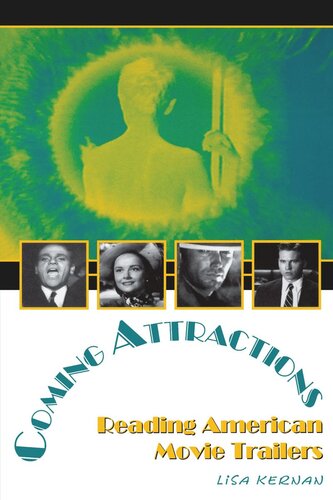

Most ebook files are in PDF format, so you can easily read them using various software such as Foxit Reader or directly on the Google Chrome browser.
Some ebook files are released by publishers in other formats such as .awz, .mobi, .epub, .fb2, etc. You may need to install specific software to read these formats on mobile/PC, such as Calibre.
Please read the tutorial at this link: https://ebookbell.com/faq
We offer FREE conversion to the popular formats you request; however, this may take some time. Therefore, right after payment, please email us, and we will try to provide the service as quickly as possible.
For some exceptional file formats or broken links (if any), please refrain from opening any disputes. Instead, email us first, and we will try to assist within a maximum of 6 hours.
EbookBell Team

4.4
72 reviewsMovie trailers—those previews of coming attractions before the start of a feature film—are routinely praised and reviled by moviegoers and film critics alike: "They give away too much of the movie." "They're better than the films." "They only show the spectacular parts." "They lie." "They're the best part of going to the movies." But whether you love them or hate them, trailers always serve their purpose of offering free samples of a film to influence moviegoing decision-making. Indeed, with their inclusion on videotapes, DVDs, and on the Internet, trailers are more widely seen and influential now than at any time in their history. Starting from the premise that movie trailers can be considered a film genre, this pioneering book explores the genre's conventions and offers a primer for reading the rhetoric of movie trailers. Lisa Kernan identifies three principal rhetorical strategies that structure trailers: appeals to audience interest in film genres, stories, and/or stars. She also analyzes the trailers for twenty-seven popular Hollywood films from the classical, transitional, and contemporary eras, exploring what the rhetorical appeals within these trailers reveal about Hollywood's changing conceptions of the moviegoing audience. Kernan argues that movie trailers constitute a long-standing hybrid of advertising and cinema and, as such, are precursors to today's heavily commercialized cultural forms in which art and marketing become increasingly indistinguishable.